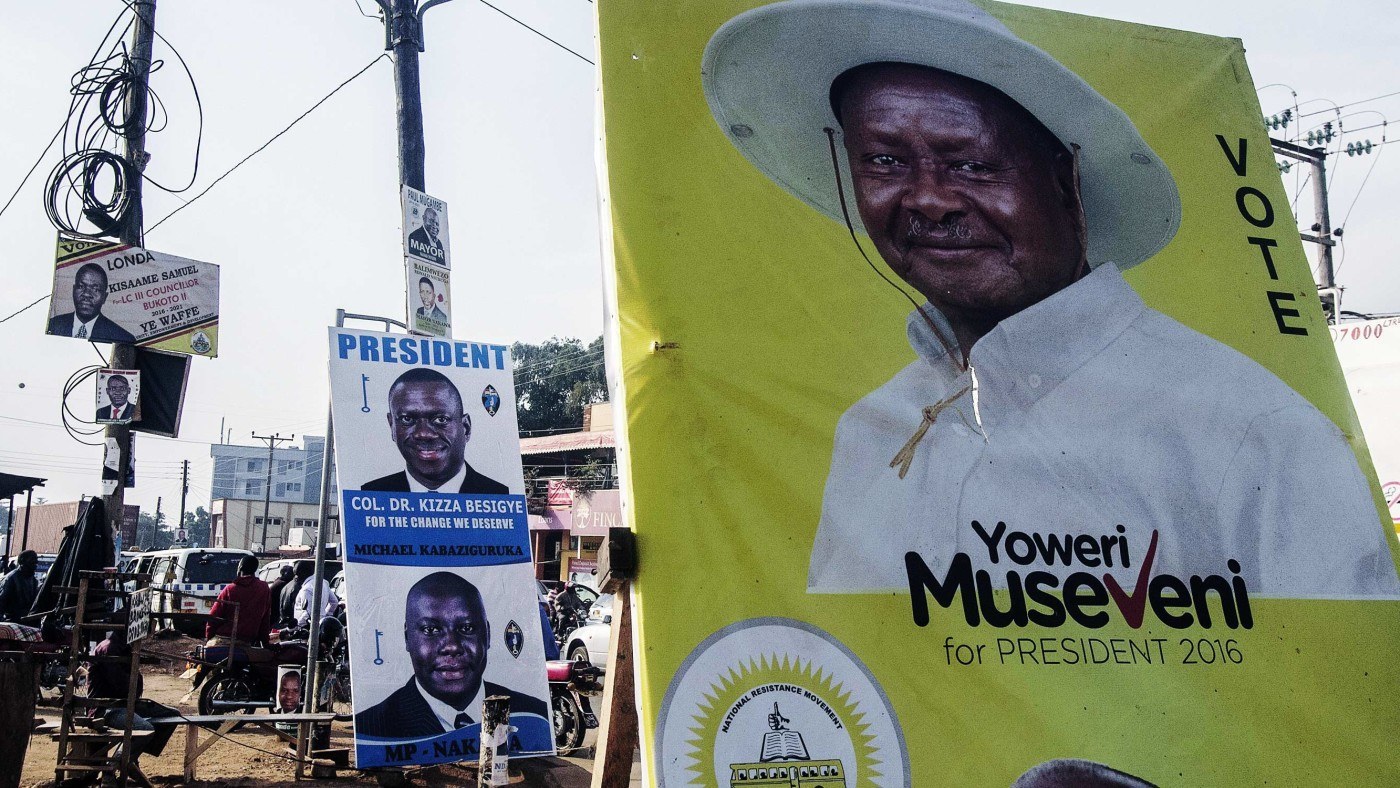Today, Ugandans are going to the polls to vote in the presidential, parliamentary and local elections, in the third election since the restoration of multiparty politics in 2005.
President Yoweri Museveni is seeking to maintain his rule as leader of the National Resistance Movement (NRM) into a fifth term, and is up against seven opposition candidates in his toughest challenge yet.
Prime Minister Ruhakana Rugunda has assured Ugandans that today’s elections will be peaceful and on Tuesday urged all registered Ugandans to “turn out in droves”.
“I personally encourage and the government encourages all the registered voters to turn out in big numbers to ensure that they vote for party and candidates of their choice and for parties of their own choice,” he said. There are just over 15 million registered electors, out of an estimated population of 37 million.
Similarly, the Ugandan national electoral commission spokesman Jotham Taremwa told Agence France-Presse on Wednesday that he was expecting presidential and parliamentary polls to pass off peacefully. “The stage is set. We have dispatched electoral materials to all polling stations throughout the country and are ready to kick off the exercise.”
However, there has already been trouble with opening the polling stations this morning. Uganda’s electoral commission has apologised over delays, blaming difficulties in transporting said electoral materials, as people queue to vote in the crucial elections. Around mid-morning, social media and mobile money services were shut down by the Uganda Communications Commission (UCC) for ‘security reasons’ as citizens were taking to social media platforms to express their frustration at the delay.
The electoral commission has since denied knowledge of this crackdown:
I am not aware that we (electoral commission) instructed the UCC to shut down social media -Taremwa #UgandaDecides
— NTV UGANDA (@ntvuganda) February 18, 2016
Museveni, 71, is expecting to extend his 30-year rule, in a race widely seen as the tightest in the East African state’s history. Mr Museveni has been in office since winning a five-year guerrilla war in 1986, and he is one of the continent’s longest-serving leaders. His final term was meant to end in 2006, but in 2005 he won a campaign to lift the constitutional term limits.
Of the seven opposition candidates running against him today, his main challenger is his former physician, Kizza Besigye who is running on behalf of the main opposition party, Forum for Democratic Change (FDC). Besigye has stood against his former comrade-in-arms President Museveni in the last three presidential elections. Mr Besigye has spoken out against the President, accusing him of rigging elections and using state funds to support his party.
He has also expressed concerns that today’s elections will not be free and fair. One person was killed on Monday in clashes between Mr Besigye’s supporters and the security forces in the capital, Kampala. On Tuesday, state police blocked Besigye and his supporters from accessing parts of Kampala to hold their party’s final rally before today’s vote. Local media have reported that while insisting that Besigye could not campaign through the Kampala business district (for the reason that it would disrupt business activities), the police did not enforce the same law when incumbent President Yoweri Museveni and his supporters did the same. Opposition parties are also alleging that the electoral commission has failed to update the voter roll since 2011, which could have an impact on the result if true.
Former Prime Minister and ally of Museveni, Amama Mbabazi, is also a leading contender for the presidency having served as defence, security and justice ministers. Despite Besigye claiming more popular support, the incumbent government is most concerned at Mr Mbabazi’s challenge, as he is an insider with extensive connections who could possibly siphon off votes from NRM supporters looking for fresh faces at the top. This concern is easy to see as Mr Mbabazi’s presidential campaign has faced challenges from the government from the outset: at his very first campaign meeting last July when he was arrested, along with one of his daughters, for violating public order laws by attempting to hold meetings without permission. He blamed this arrest on the President directly. Another indicator (from the African Centre for Media Excellence analysis of December campaign coverage) says the state-owned Uganda Broadcasting Corporation gave President Museveni 44% of its airtime, Mr Mbabazi 24%, and Mr Besigye just 4%.
Whilst Museveni has done positive things for Uganda economically in the past, there is wide-spread dissatisfaction amongst the young about unemployment and deteriorating public services. This could be crucial in today’s outcome considering Uganda has one of the youngest and most rapidly growing populations in the world. About 53% of Uganda’s population is younger than 15, well above Sub-Saharan Africa’s average of 43.2%, and more than 75% of young people in Uganda remain unemployed. Yet more than 60% of voters who will be going to the polls today were born after President Yoweri Museveni came into power. They have known no other leader, and it is unclear whether this will work in his favour or not.
A candidate needs to secure more than 50% of the vote to win outright and avoid a run-off with the second-ranked contender. The elections work off a first-past-the-post system, with some of the 418 Parliamentary seats reserved for women, the disabled, and other groups.
The electoral commission has released a statement that despite the delays in opening polling stations, voting time will not be extended.


